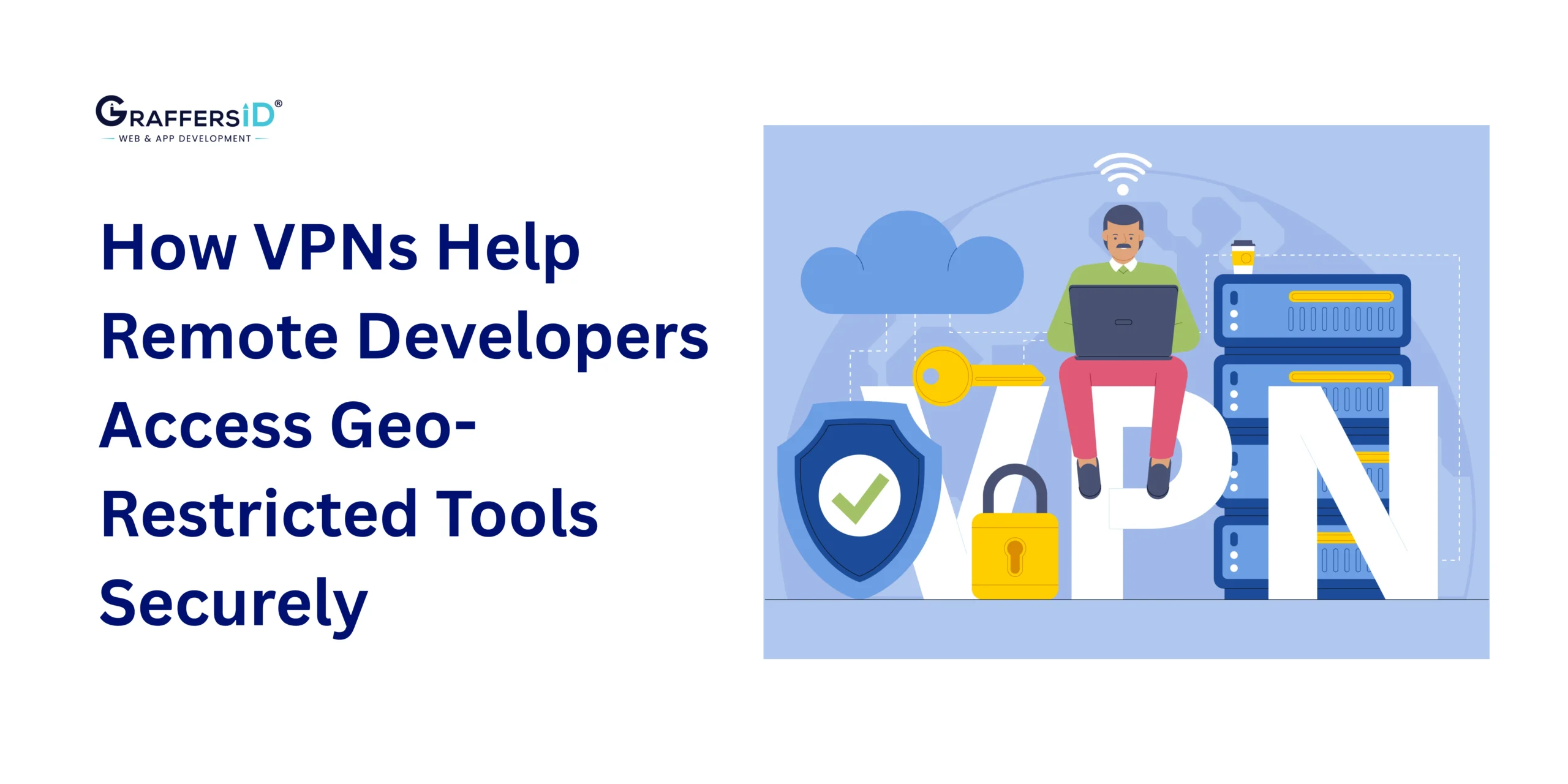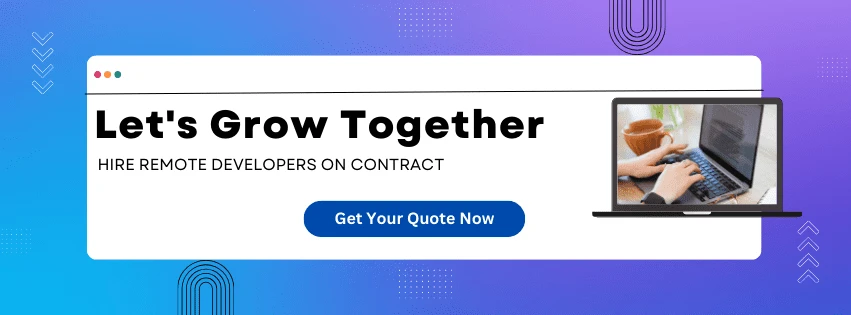The digital nomad life could be glorious with the right tools. However, essential dev tools or testing platforms might be blocked in specific locations. Geo-restrictions could be a true headache, especially when working online.
In this guide, we’re diving into how VPNs help remote developers (that’s you!) bypass restrictions, protect their data, and keep their workflows running smoothly—no matter where on the globe they’ve parked their laptops.
Why Are Some Tools Geo-Restricted?
Before we leap into solutions, let’s talk about the weird rules of the internet. Some dev tools, platforms, or APIs are only available in certain regions because of many different factors. Some of them could be:
- Licensing restrictions;
- Government censorship or sanctions;
- Company-specific geo-fencing;
- Security protocols or legal compliance issues.
Why is a VPN the Perfect Solution For This?
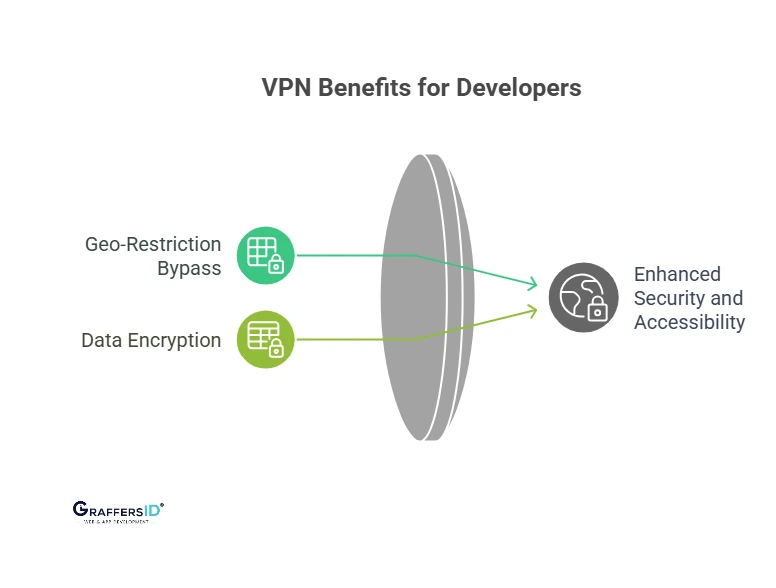
A VPN, or Virtual Private Network, lets you route your internet connection through a server in another location.
If you work as a developer, you must be familiar with these terms, but if you are wondering what is VPN, here’s an answer for you: A VPN makes it look like you’re browsing from, let’s say, San Francisco when you’re actually in Singapore. This tool basically keeps your IP address hidden from anyone you want.
This is what a VPN could do for you:
1. Bypass Irritating Geo-Restrictions
Let’s say you’re trying to use a container registry that’s only accessible from the U.S., but you’re currently working from Turkey. A VPN lets you choose a U.S. server, and boom: access will be granted.
This is not just about having access; it’s also about maintaining your workflow and efficiency. You won’t need to waste time googling things like: “How to open Docker Hub from whatever country you are in.”
2. Make Sure to Protect Your Data While You Code
Remote life often looks like working from coffee shops, co-working spaces, airports, or wherever there’s halfway-decent Wi-Fi. Nevertheless, public Wi-Fi networks are not as safe as they seem. Four in 10 people have had their information threatened while using public Wi-Fi. Anyone on the same network or with access to it could potentially snoop on your traffic.
When you use a VPN, it encrypts all your data. That means even if someone does try to spy on your connection, all they’ll see is encrypted gibberish. It’s like speaking a secret language only your VPN server understands.
Read More: Data Privacy in the Digital Age: How to Protect Your Information
Why VPN Matters in 2025?
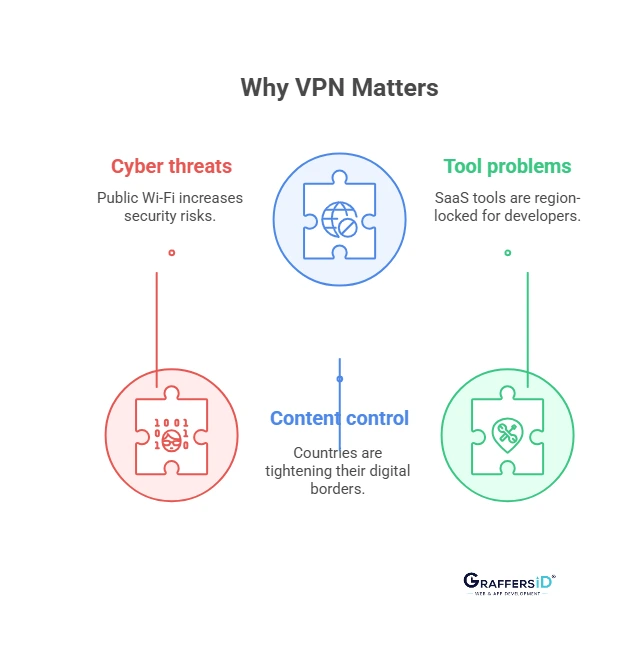
The world is increasingly distributed. Teams are everywhere. You’re no longer tied to HQ to contribute, deploy, or collaborate. But that flexibility comes with challenges:
- Increased cyber threats: More public Wi-Fi = more risk.
- Tightened content control: Countries continue to tighten their digital borders.
- More tools, more problems: Dev stacks are growing fast, and many SaaS tools are region-locked.
Many developers can’t afford to waste time fighting with access issues or risk their client’s data being exposed just because they hopped on an unsecured hotel Wi-Fi. Staying nimble and secure isn’t a nice-to-have; it’s an essential.
What Makes a Good VPN for Developers?
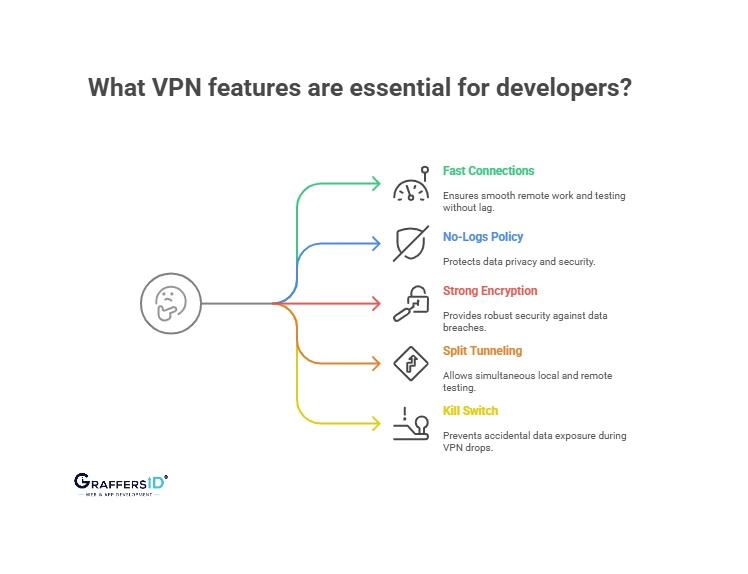
Not all VPNs are the same. There are many different options out there, ranging from complex solutions to free options. For a developer, the stakes are higher than just streaming Netflix content from another country. Here’s what to look for:
- Fast, stable connections: Some VPN providers, especially the free ones, can have long lag times. This could be a major inconvenience for remote workers.
- No-logs policy: Your data should be yours and yours alone. Search for a good provider that can ensure a no-logs policy service.
- Strong encryption: Look for AES-256 bits at minimum.
- Split tunneling options: These options could be useful for testing local and remote connections at the same time.
- Kill switch: If your VPN drops, your connection gets cut to prevent accidental exposure.
Other Tools You Can Use to Stay Secure
A VPN is your first line of defense—but it’s even better when combined with other tools and habits:
- Use password managers to avoid reusing passwords.
- 2FA/OTP apps for every login;
- Encrypted messaging tools are a good choice for sensitive information.
- Zero-trust security tools if you’re on a team that supports it;
- SSH key management tools (especially if you’re working on client servers).
Read More: The Biggest Cybersecurity Threats And How to Protect Yourself
Does a VPN Slow Down Your Work?
If we are completely honest, sometimes a VPN could slow down your internet connection. This is why it is so important to choose a good provider. Professional and serious companies will have fast servers optimized for speed.
Many developers run VPNs 24/7 without any noticeable slowdowns. You can also experiment with different server locations to find one that gives you a better ping or download speed, depending on where your tooling is hosted.
Tip: Try choosing a VPN server that’s geographically close to your tool’s data center rather than just close to you; it might surprise you.
Final Tips for Devs Using VPNs in 2025
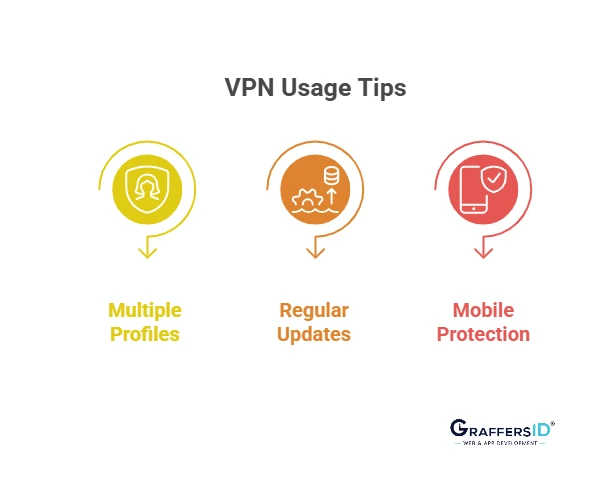
- Use multiple profiles: It’s clever to have one VPN profile for testing apps from different countries and one for secure work browsing. You could easily do this with a good VPN provider.
- Keep it updated: Always keep your VPN app and OS up-to-date for security patches. Actually, keep this advice for any app you use.
- Don’t forget mobile: Use a VPN on your phone and tablet too. Your dev life doesn’t stop at your laptop.
Final Thoughts
Remote development isn’t just a trend; it’s the norm nowadays. Lots of companies are choosing to lower costs by hiring remote workers. Unfortunately, with freedom comes responsibility, and professionals can’t afford digital dead ends.
VPNs are the perfect solution for remote developers to avoid geo restrictions and enjoy a borderless dev environment while taking care of their security.
It is a great tool that remains up to date and relevant. VPNs are accessible and useful, which makes them a perfect choice for professionals and internet explorers. Give VPNs a try, and you might improve your productivity and security.
